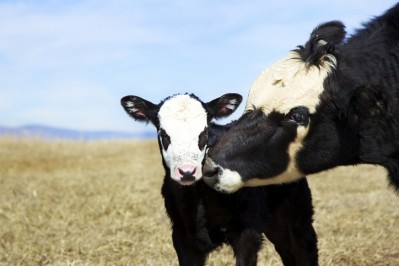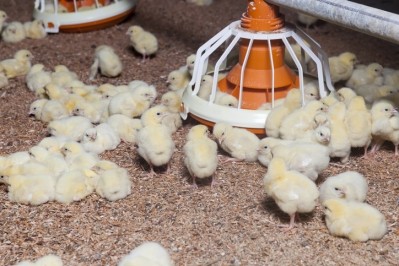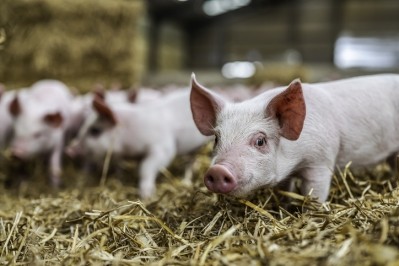Delacon leveraging internal expertise to navigate sourcing challenges, ensure portfolio diversity

There are limitations today in relation to sourcing of plants, of particular active ingredients, said Stéphane Jolain, chief business officer, Delacon. “That is not something we anticipated many years ago.”
There is a lot of complexity in terms of formulations relying on plant derived ingredients, he said.
“We want to use the plant universe instead of relying on chemical substances, but it is challenging. We want to combine a large amount of plant substances, but we have to secure the supply chain.”
When it comes to key active ingredients, some are not available in large quantities, so Delacon is leveraging its in-house expertise to optimize their use, only including them in certain applications, for certain life stages, for example, so that market expectations can be met, he stressed.
There are multiple factors behind current constraints in supply of plant ingredients, according to Jolain, with climate change, drought, manpower and logistics challenges all playing a role.
“A lot of expertise is needed to be able to adapt, to find ways to maintain the diversity of the substances we use; the effectiveness of our products are highly linked to that diversity.”
Having a large portfolio of plant substances to draw from is critical.
Targeted solutions
Key to Delacon’s growth strategy in recent years, he said, has been that development of products across species, and for the various life stages. “Market demands have changed, the more targeted and specific a solution can be, the better the overall response will be.”
Developing solutions to match the level of performance of antibiotic growth promoters (AGPs) is not the biggest challenge for a company like Delacon, he added.
“We have been producing products in this regard for almost 20 years in Europe, we have carried out multiple trials. We are now nearly on par with AGPs in terms of feed efficiency gains.
“What we have seen, though, is that the reduction in the use of antibiotics does create more sensitivity in the gut of animals. If gut stability is not secured, then performance is endangered. We have developed a specific line of products, per species and life stage, to protect animals in challenging conditions.“
The producer has been particularly focused on strategies to support animals in the early growth phases, along with the post-weaning stage for piglets, to ensure the development of normal gut health.
Organic production
Most of the company’s products are compatible with organic production criteria in Europe, and the US, he confirmed. “This gives us a real advantage.”
And demand is increasing from Delacon customers – both feed companies and integrators – for feed additives that can be use in organic production, he said.
“In Europe, most of our standard products are available in organic versions, they comply with EU organic feed regulations; in the US, as the regulation is different, we have made a few products available for organic production. And if a product is compatible with organic production in Europe, then producers in Asia can also adopt it.”
Consumer demands, sustainability
Multiple market trends are creating growth opportunities for phytogenic producers:
Consumer and retailer demand for natural food and feed is growing, he said. Delacon surveys show millennials increasingly consider the feed components in an animal’s diet as being important.
There is a heightened focus in the market today on animal health and welfare, while sustainability is also a huge driver in the industry, with greater feed efficiency and the reduction in the use of raw materials, as well the pressure to lower emissions from livestock farming, pertinent trends, noted Jolain.
Gaining market share in China
The phase out of AGPs continues globally, accelerating in the past two years, particularly in relation to swine, he said.
“There is significant competition in a market like China when it comes to AGP alternatives. Given the dominance of traditional Chinese medicine, there is a lot of knowledge in that market around the use of plants, so there are hundreds of companies there now offering phytogenic products - a lot of startups - but the added value we bring is that we have products that have already been validated in other key markets - the US and Europe - and they have been used successfully in the shift away from AGPs. We also have phytogenic additives with EU zootechnical registrations; having products that have been proven scientifically gives us a clear advantage, in China, particularly with the larger companies,” said Jolain.
Stability, shelf-life studies
Work continues around microencapsulation technology at Delacon to ensure shelf-life and protection of the active ingredients in the final feed, given the challenges that feed pelleting and extrusion can invite.
And the company’s R&D and laboratory teams ensure ongoing monitoring of the effect of a range of parameters on active ingredients from temperature to moisture to pressure to see how long they can guarantee the level of actives in the products, said Jolain.
“Shelf-life is so important for us but also for our customers. When we ship goods to the other side of the world, to Asia for example, we know that the temperature in the shipment container could be up to 70 degrees Celsius for several days, then the goods are delivered to a central warehouse, from where they are transported to retailers, before being delivered to the farm. So it could be a year from the time the product is produced to the time it is used by the animal. Thus, we need to give more than a year of stability, this is a must. We have a shelf-time of 18 months and, in some other cases, we can extend that up to 24 months, while for products that are not volatile we can obtain three years of stability.”















